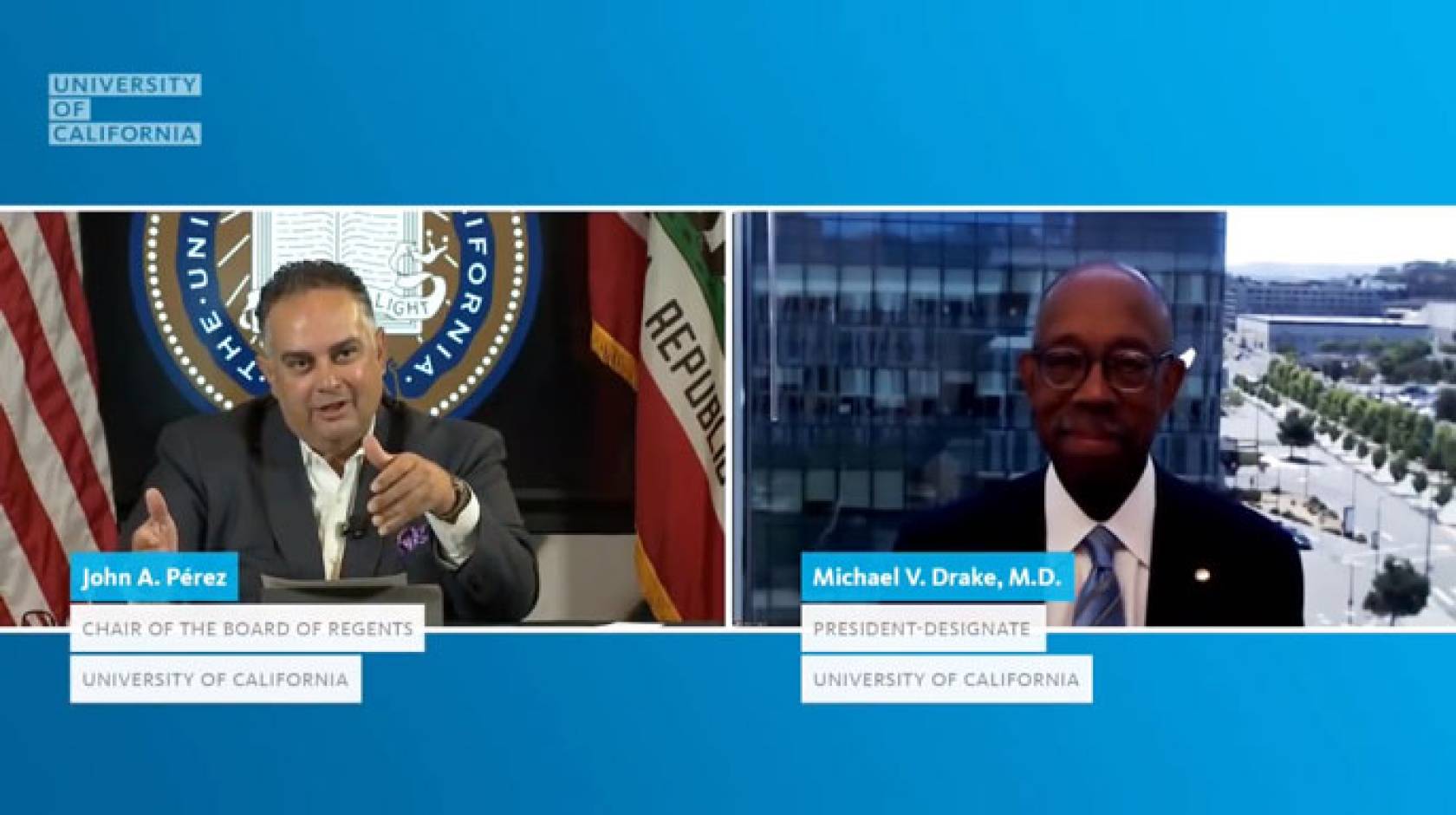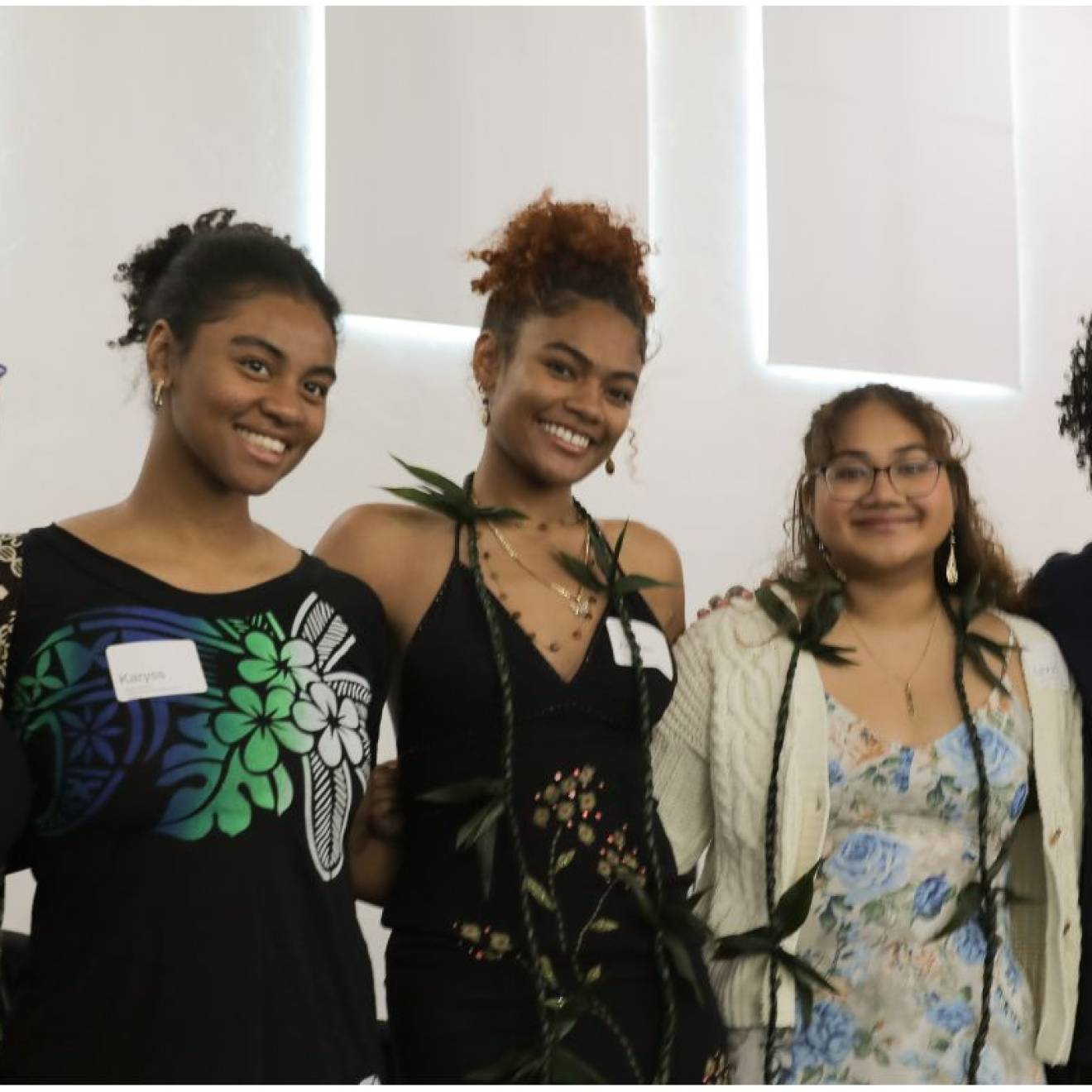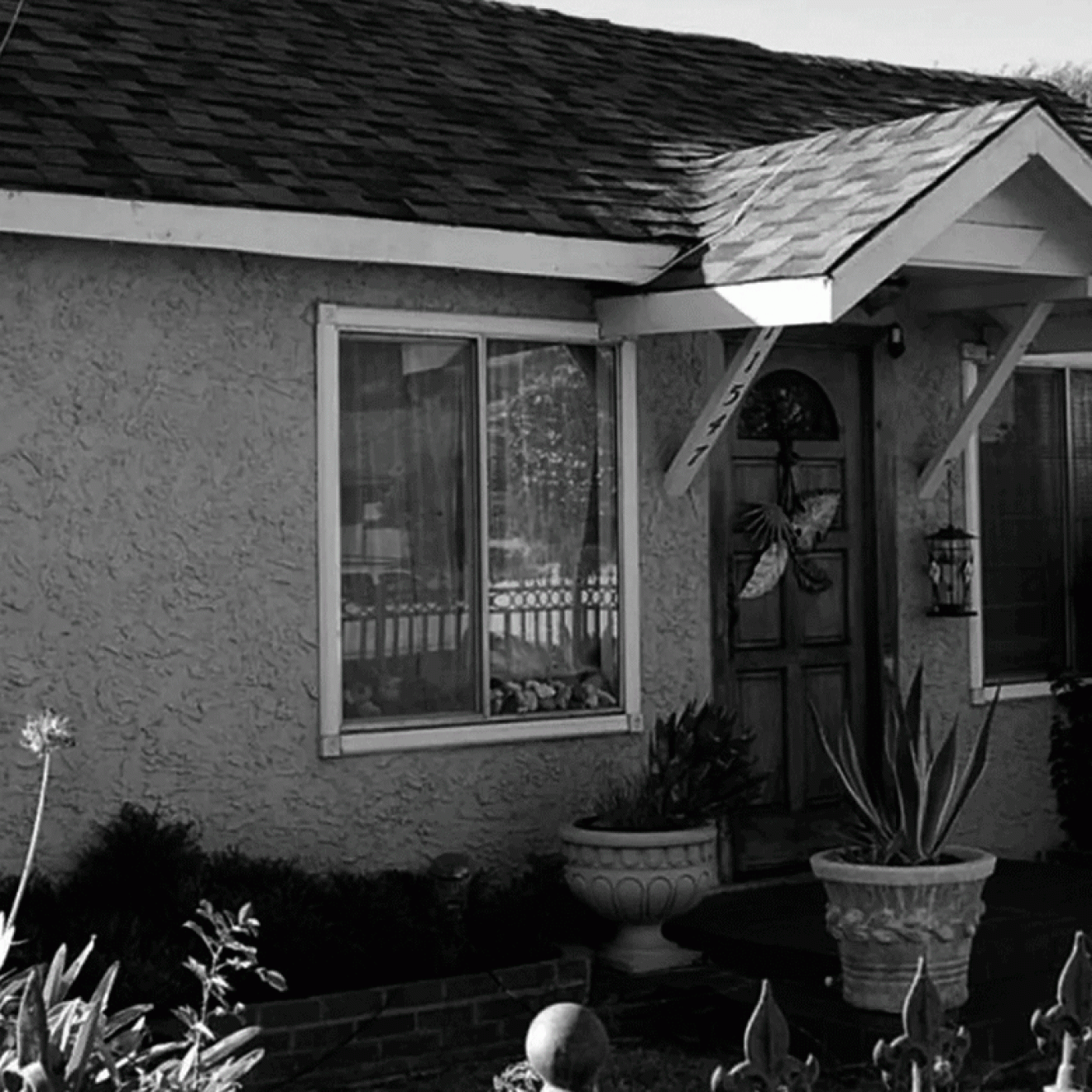Nicole Freeling, UC Newsroom

In mid-August, Dr. Michael Drake will officially become the 21st president of the world-renowned University of California, a place he calls “the most impactful public research university in the world.”
Drake, who led The Ohio State University for six years, and also served as the chancellor of UC Irvine, was the unanimous choice of the UC Board of Regents to lead the University of California system.
Drake takes the helm of a system with 10 campuses, five medical centers, three nationally affiliated labs, and more than 280,000 students and 230,000 faculty and staff. As to whom he ultimately answers to, Drake talks about a photo that he keeps in his office, next to the picture of his family. It depicts a farmworker tilling the fields. “I keep it as a reminder [of] who the boss is” — Californians from all levels of society, who benefit from the university’s research and opportunity, and “whose lives are elevated when we get this right.”
Drake, 70, enters UC at a pivotal moment, as the nation grapples with an ongoing pandemic, economic crisis and a reckoning over a history of racial injustice. It is also a time in which UC seeks to lead the charge in confronting many of these issues, from expanding access and promoting diversity to helping the nation respond to the global health crisis and pushing forward research to find a cure.
The first Black president in UC’s 152-year history, Drake brings a background of leadership in medicine and higher education that is particularly suited to the challenges of the moment. A graduate of UCSF School of Medicine with a fellowship in ophthalmology, he spent more than two decades as a faculty member at UCSF before becoming systemwide vice president of health affairs. He went on to lead UC Irvine in 2005, and The Ohio State University in 2014.
In a livestreamed conversation with UC Board of Regents Chair John A. Pérez on July 10 (that you can watch here), Drake talked about the values and experience he brings to the university and what he sees as the key challenges ahead.
He also shared personal reflections on how attending UC changed his life, his lifelong efforts to promote equity and inclusion, and his passion for music — including his membership as a board member for the Rock & Roll Hall of Fame.
Credit: University of California
Why he chose to take on the role of UC president
Drake: Honestly, I was taken by the focus and dedication [of the search committee], and the direction they believe the university should go in. The chance to be a part of that was intriguing, so here we are.
My wife [Brenda Drake] and I are both alums, she from law school at UC Berkeley and me from the School of Medicine at UCSF. We’ve been a part of this system for all these years. Anyone who knows these jobs knows these are two- person jobs. They take up your family’s life. Our homecoming was a joint decision and we’re both really excited.
On assuming leadership in the midst of a crisis
These are unprecedentedly challenging times for us as a university, state, nation and a world. The pandemic is horrific and has led to countless personal family tragedies and is still raging. If we care about ourselves, if we care about our families, our fellow citizens, and our economy, we need to do what we can to keep this tamped down. I’ve got my mask right here and I think we all need to wear masks. There are really two sides on this issue: you can be on the side of humanity, or you can be on the side of the virus.
The economy is a challenge for all of us. We have to do our best in this tight economic time. And it’s a time when social justice, the inequities of social circumstances and the social determinants of health are clear on an everyday basis. These are things this university has been involved in since its founding. They are challenges that we have to face as we’re moving forward.
What it means to be a public university
As a land-grant university, we were brought into being to educate the sons and daughters of the people who were working to develop the country as it grew forward, now 152 years ago. In that focus, our role is to do the things that uplift the quality of life of the people in the communities we work in and it’s really them we’re here to serve.
His personal commitment to diversity and inclusion
My options to attend college were broadened in the period after the ‘60s. My undergrad degree and my ability to come to UCSF as a student were something that would have been entirely unusual five years earlier.
Structural changes can happen and they can make a difference. They require our vigilant effort and we have to get those things right as we move forward.
But I think change is possible. The Regents have endorsed a chance to broaden our ability to admit students and be inclusive, and I think that’s very important.
Where education and health connect
Throughout my career, we’ve seen unacceptable disparities in health care access and health care outcomes that really plague our nation. We all need to be dedicated to finding them and eliminating those disparities. They’re connected to other disparities: the job one has, the social determinants of health that describe one’s life. The work of the university is meant to create the opportunities that uplift our communities more broadly and as those things work, the public health of the people we serve improves as well.
Addressing global climate change
Climate change is critically important. It was one of the most important things we focused on at UC Irvine. We were very pleased to build and to program the campus to focus on environmentally sustainable ways of being in the world. We have now multiple times been listed as Coolest Campus in the country, [which] no campus had done in a repeated form before UC Irvine.
As a globe, as a nation, it’s really critically important that we work to reverse the climate change that we’ve seen changing the ecosystem right before our eyes, and the university is meant to be a leader.
On music — and his involvement in the Rock & Roll Hall of Fame
I played a little as a kid, and my first job was working as a clerk at the original Tower Records in Sacramento. Later on, I thought my kids had given the guitar away, and I found it when we were cleaning out some things, rusted strings but I got them replaced and started playing a bit.
When I went to Ohio, I met a colleague who was on the Rock & Roll Hall of Fame Board, and we started playing a few times a year. I ended up joining the board of the Rock Hall, and we’d have these wonderful times to play together. The concept of what is rock ’n’ roll has evolved and we’re actually making sure it’s popular music of the day that is being brought in, Tupac and Biggie and others. That’s an important direction for the hall to be taking, so I’m pleased to see that happen.
The ongoing struggle for civil rights
I’ve been teaching a course for years: Civil Rights, the Supreme Court and the Music of the Civil Rights Era. It’s meant to look at social movements and how the laws respond. We used music because we wanted to have an art form that would help our students understand the way people were feeling back during the times these things were happening.
[The] Ferguson [protests were] interesting because we looked at the reactions of the world and compared that to the Watts riots more than 50 years before. The words were almost interchangeable, the causes were almost exactly the same, the proposed solutions were quite similar. And we’re repeating these things decades and generations later. It left me with a compelling drive to figure out what to do differently this time so no one is repeating these things.

